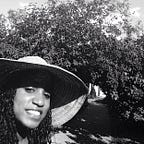America the great… third world country?
The health status of children in developing countries is bad. There are millions of children with no food, clean water, or access to basic medical care in these places. And they’re dying in droves. They’re dying in refugee camps in Somalia, they’re dying trying to cross borders for safety from civil unrest and wars in Syria, they’re dying in rural villages in ingratiating circumstances with no access to reach any type of medical care at all in India, and have no record of their existence where no medical facility was ever even accessed for their birth. And these children are being orphaned as their parents are dying too due to easily preventable causes that are not being recognized, addressed, or treated due to lack of resources or infrastructure to manage them.
Heartwrenching. We realize these are serious issues. But then, what about the problems at home? We have problems at home that need to be addressed first. With a widening in the gap between the haves and have-nots in our own country, America, isn’t our healthcare system turning into another third world country? Why should we be helping them when we are suffering ourselves?
I’ve been working on health and health equity for the majority of my adult life, defined by a pivotal moment of realization during a sociology course in College. I read the U.S. CDC health disparities and inequalities report, and could not have been more shocked by what I saw. For every single bad
indicator of health: prevalence of diabetes, high blood pressure, death rates from stroke, death rates from heart attacks, death rates of children, they were disproportionately higher in minorities as compared to their White counterparts.
As a returning American from the homeland of my parents in Kenya, for college, and a majority society, this idea of disparity amongst races was completely foreign to me. I didn’t understand it, and my mind raced with more questions than I could have ever have time to answer in ten lifetimes, and a burning desire to help immediately began. This led to an undergraduate thesis on the topic, and many other pieces of work, and programming for several more years after that in the area. But then, as they say, my journey, led me home — to thoughts on the homeland of my parents, the motherland, Africa. It dawned on me one day that while I felt as though I was doing a service in addressing healthcare disparities here in America, a land with resources that are disproportionately distributed that in turn dictates the outcomes of health and healthcare for those with lower socioeconomic status, the stark difference between America and Africa is far worse. The difference between the haves in first-world or developed countries, and that of have-nots in third world or developing countries seems insurmountable.
But the thing is in Africa, my main focus area of work, they don’t have any comparable infrastructure for care including the providers or services we often take for granted. There are no mammograms in entire countries, there are no neurosurgeons to treat brain cancers; they have no public health system, at all, in some countries. There are no ambulances. There is no physician to call in case you have a question about your feverish child in the middle of the night. They sometimes really, truly, have nothing.
